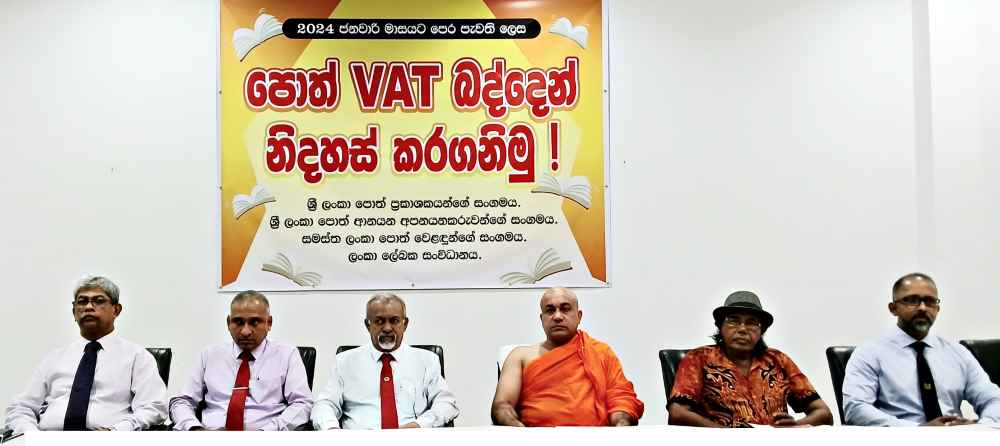
Submits proposal for inclusion in first budget of new NPP government
Colombo, Tuesday 10th December 2024: Sri Lanka’s book industry has renewed its call for books to be exempt from tax, with four industry bodies submitting a proposal to the new government for inclusion in the next national budget
Urging the government to consider the financial as well as social ramifications of taxing sources of knowledge and learning, these associations representing publishers, writers, retailers, importers and exporters have called for books to be returned to the list of items exempt from tax, as was the case before 1st January 2024.
In their proposal, the four associations pointed out that with all inputs for the publishing industry with the exception of local labour being imported, Sri Lanka’s book industry is already taxed at 33.045%, and the imposition of a value-added tax (VAT) of 18% at the point of sale has made books unaffordable to many, and is putting small-scale publishers out of business.
Addressing media at a news conference, Sri Lanka Book Publishers Association (SLBPA) President Mr Samantha Indeewara pointed out that representatives of the new government while in the parliamentary opposition had criticised the imposition of VAT on books, and had the government of that time to reverse this. “We are therefore cautiously optimistic that the concerns of the book industry would be addressed in the next budget,” he said.
“We have brought to the government’s attention the numerous anomalies affecting the industry that are directly attributable to the imposition of VAT on books,” he said. “This includes the fact that the majority of publishing companies are not eligible to pay VAT, and therefore are unable to deduct the VAT they pay on inputs for locally produced books, or the VAT they pay on the imports,” Mr Indeewara elaborated, disclosing that only about 12 large publishing and printing companies are eligible to pay VAT on their sales and can therefore deduct the VAT they pay on inputs.
However, many of the smaller publishers sell their books via the bookshops and distribution networks of the large companies, and the imposition of VAT results in all of their books being taxed, he said.
Another matter of serious concern is that by imposing taxes on books, Sri Lanka continues to be in violation of the UNESCO Florence Agreement of 1950, to which the country was an early signatory and continues to be a Contracting State. The UNESCO Florence Agreement is a treaty that binds Contracting States to not impose customs duties and taxes on certain educational, scientific, and cultural materials that are imported.
“The industry has once again come together to emphasize that the imposition of VAT on books would have long-term negative socioeconomic impacts by making access to knowledge on the history, culture, values and traditions of Sri Lanka, and by retarding opportunities for creative expression, in addition to making education more expensive, and compelling some book businesses to close,” SLBPA General Secretary Mr Dinesh Kulatunga added.
Associated with the SLBPA and joint signatories to the proposal submitted to the government were the Sri Lanka Writers Association, the All Ceylon Booksellers Association, and the Sri Lanka Book Importers and Exporters Association.



